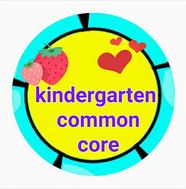Well hey there, y'all! Thanks for stopping by today. I absolutely love blog hops...especially with my Elementary Entourage crew! This time we are sharing what we received from our Secret Santas within the group. I was lucky enough to get a box from our very own Stephany Dillon from Primary Possibilities. All I can say is that we all know each other very well at Elementary Entourage. Let's take a look at my box of goodies from my friend, Stephany.
I am off season from competition training right now, so those sweets...yes please! Everyone knows I am a lover of coffee, too. That size mug is perfect for the zombie like state I am in when I wake up...less trips to the coffee pot! My EE team was there for me every step of the way during my first competition. The cup and the journal Stephany found really touched my heart. It took a lot for me to venture out in the fitness world, and one of my favorite things to say is Dream, Believe, Achieve! PERFECTION! Thank you so much Stephany...tears!!!
And now for you I have a cute little freebie. This fits perfectly into Christmas activities this week, especially if you are having a class Grinch Day like we are! I hope you enjoy this product!
 |
| {Click on the image above to be taken to my store and download your freebie} |

































